The seat of knowledge is in the head; of wisdom, in the heart. We are sure to judge wrong, if we do not feel right
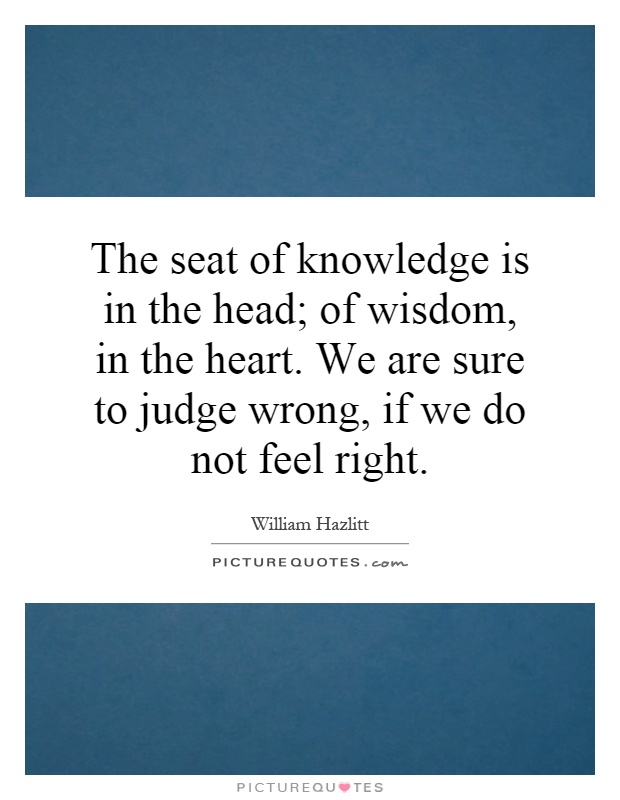
The seat of knowledge is in the head; of wisdom, in the heart. We are sure to judge wrong, if we do not feel right
William Hazlitt, a renowned English writer and philosopher, once said, "The seat of knowledge is in the head; of wisdom, in the heart. We are sure to judge wrong if we do not feel right." This quote encapsulates the essence of Hazlitt's belief in the importance of both intellect and emotion in making sound judgments and decisions.Hazlitt was a firm believer in the power of reason and logic, which he believed resided in the head, or the mind. He understood the importance of acquiring knowledge through education, observation, and critical thinking. However, Hazlitt also recognized that knowledge alone was not enough to make wise decisions. Wisdom, he believed, came from the heart, or the emotions. It was the ability to empathize, to understand the feelings and motivations of others, and to act with compassion and integrity.
In Hazlitt's view, the head and the heart were not mutually exclusive but rather complementary. Knowledge without wisdom could lead to cold, calculating judgments that lacked empathy and understanding. On the other hand, wisdom without knowledge could result in well-intentioned but misguided decisions. It was only by combining the two – by using both reason and emotion – that one could make truly wise and just choices.
Hazlitt's philosophy is particularly relevant in today's world, where we are bombarded with information and data but often lack the emotional intelligence to make sense of it all. In a society that values intellect and achievement above all else, we risk losing touch with our own humanity and the humanity of others. Hazlitt reminds us that true wisdom comes not just from what we know but from how we feel – from our ability to connect with others on a deeper, more empathetic level.


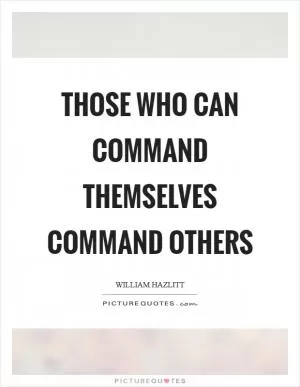

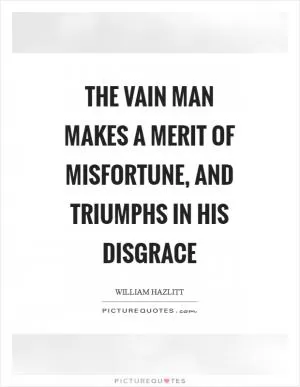

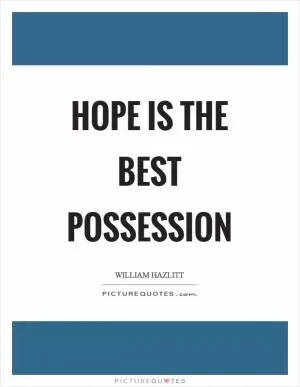


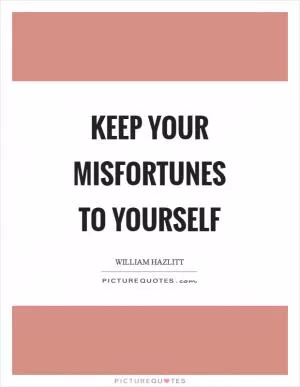
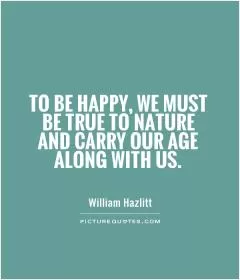

 Friendship Quotes
Friendship Quotes Love Quotes
Love Quotes Life Quotes
Life Quotes Funny Quotes
Funny Quotes Motivational Quotes
Motivational Quotes Inspirational Quotes
Inspirational Quotes